WELL…I did it. I finally finished my entire re-read of the Harry Potter series and
I am happy to report that J.K. Rowling's Wizarding World has not lost any of the magic it contained since the last time I read the series all the way through in Middle School.
However, one thing that HAS changed since Middle School is the lens through which I read the series-- the lens of, not only a better trained literary analyst but of a believer in Jesus.
Although I was originally unaware of J.K. Rowling's personal convictions and religious affiliations, I could not help but notice clear Christian Allegories throughout each story and the series as a whole. Jesus or Christianity are not explicitly mentioned in the text, but talk of the afterlife alludes to a higher power that must exist. In different interviews, Rowling has made clear some allegories are intentional, some aren't, and that she has always struggled with her personal faith.
Regardless, I believe that because we are all made in God's image, the messages of hope, light, and the defeat of death are present in so many stories humans are inclined to tell. In Harry Potter specifically, the idea that love can defeat all things (even death) is a theme that is difficult to not compare to Jesus' sacrifice on the cross.
Before I say any more, I will stop to warn you: DO NOT keep reading if you don't want any spoilers!!!!
Here are seven illustrations of Christ and the gospel throughout Harry Potter.
1. "In expectation of the Father."
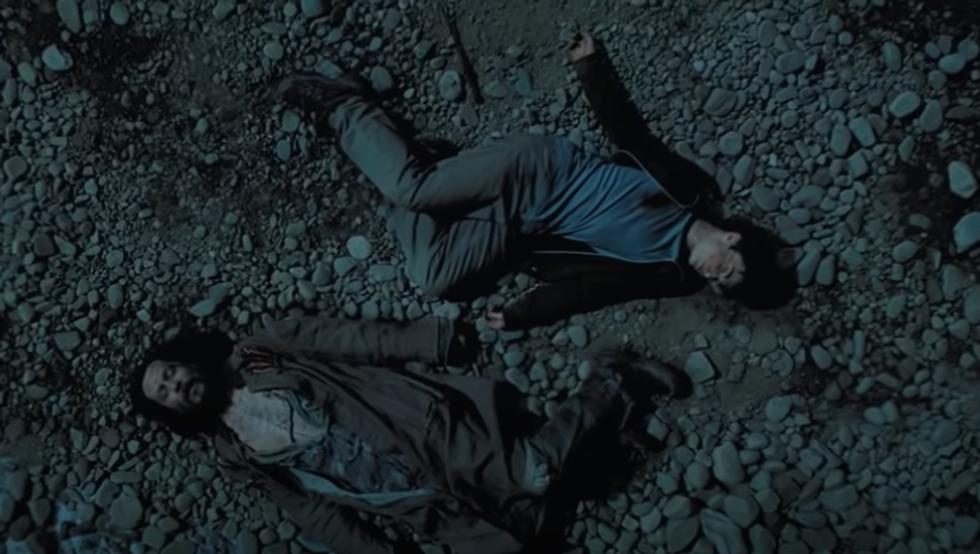
https://www.youtube.com/watch?v=n1TqCGEBdLw
I'll admit. I found an explanation of this online, but found it both insightful and worth sharing. One of my favorite moments of the series is, towards the end of The Prisoner of Azkaban, when Harry produces his strongest patronus yet. Protecting Sirius, Harry had to conjure up a memory so encouraging and extraordinary that it could defeat a swarm of hundreds of Dementors. Across the lake in the Forbidden Forest, Harry sees a boy that resembles his father and, with the hope of his late Father's presence, Harry's patronus is able to conquer all of the approaching hooded figures. Upon my research, "Expecto Patronum"-- the words in which a wizard must yell to produce a patronus-- translates into "In expectation of the Father." As every Harry Potter fan is already aware, Harry's patronus is the same form as his father's: a stag. Not only that, but every fan is also aware that a patronus is meant to be a symbol of one's authentic identity (like a spirit animal!) As the reader later finds out in the book, the man across the lake was not James, but Harry himself. With the help of Hermione's time-turner, Harry was able to return to the lake and save his own life. This is also when Harry finds out that his patronus is the same as his father's, making Harry's belief that it was his father across the lake that much more understandable. However, it is important to note that, although it was technically Harry across the lake, it was the memory (or spirit, if you will) of James within Harry that... saved Harry. Jesus' resurrection was, in fact, brought on by the Lord himself. God the father is just as much God the son, as paradoxical as it may seem. Not only that but, because of Jesus' sacrifice, we too can have the spirit of the Father within us. As believers, we live with a bright fire within us that is lit by our belief in the Father and expectation of the Father's return.
2. Sirius' death: beyond the veil
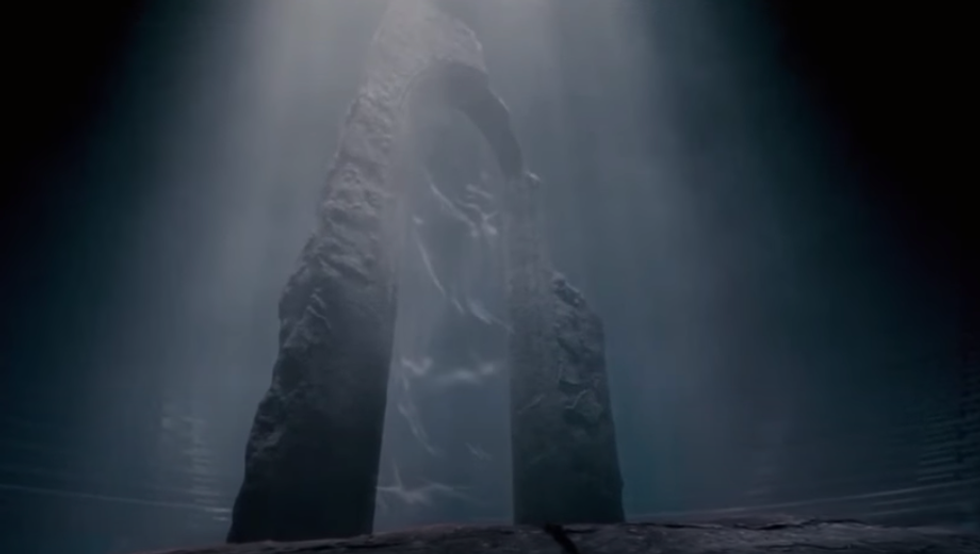
https://www.youtube.com/watch?v=nx8TX0c5tgI
The, arguably, most devastating death of the Harry Potter series is that of Harry's godfather, Sirius Black. In The Order of the Phoenix, a famous battle between the death eaters and the Order takes place at the Ministry of Magic after Harry has a premonition that Voldemort will kill Sirius. It is here that Sirius' cousin Bellatrix hits Sirius with a spell, causing him to fall into a seemingly bottomless pit behind a "Veil" in the very well-named Department of Mysteries. Before Sirius' death, Harry and Luna (the only two students who had personal experiences with death) seemed to hear voices from behind the veil and, although inclined to follow them, Hermione urges them not to. When Sirius fell, Harry thought he would be able to come back out of the Veil, perhaps on the other side. However, it is explained to Harry that, once beyond the Veil, you cannot return. This is difficult for Harry to believe because, outside of his denial that his father-figure had just passed, the voices behind the veil sounded very much real...very much alive. And that is because they are...it implies that there is a life beyond death (something we find more about in The Deathly Hallows.) When Jesus died on the cross, death was defeated once and for all. The veil in the tabernacle that had once separated the Earth from the holy of holies was ripped in two, indicating that we now all have access to the holiness of the spirit. Life eternal is a gift brought by this now open door. When believers walk through it, we will live with Christ.
3. Seven
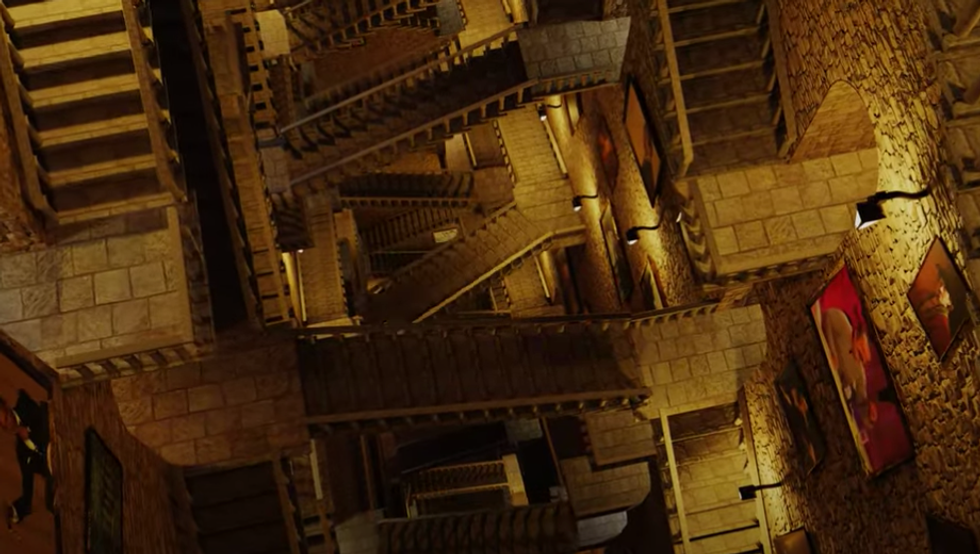
This last year, God has taught me so much about contentedness, fullness in life, and His provision. One of my biggest treasures of 2020 has been learning about the significance of the number 7 in Scripture. In Hebrew, "Seven" translates into "fullness," "completion," or "nothing can be added unto it." Since learning this back at the beginning of quarantine, Seven has stuck out to me time and time again in this time of sudden loss. It has taught me that nothing can be added unto what God provides. (If you are curious, I wrote an article on this subject a while back https://www.theodysseyonline.com/7-gods-fullness.) In J.K. Rowling's Wizarding World, seven is regarded as the most powerful magical number. It is seen time and time again throughout the series: there are seven floors in Hogwarts, seven years of school, seven core classes, seven Weasley children, seven books in the series and, most powerfully perhaps, are the seven split pieces of Voldemort's soul that Harry must defeat in The Deathly Hallows. Voldemort split his soul into seven pieces for the exact reason explained above: this number is regarded as powerful, and it is power that Tom Riddle was always after. However, what Voldemort didn't know is that his plan was foiled by another horcrux: Harry himself. The defeat of the dark lord would not be complete without putting to death all of Voldemort's horcruxes... including the one within the person...within Harry. Do you see the allegory to the gospel? (I will explain more in #3). We cannot simply overcome evil by putting to death the evil things around us. We must also put the evil within us to death. But because God loved the world so much, Jesus was sent to endure the punishment of death for us so that we may live eternally. Harry, at the end of the novel, realizes he too must sacrifice himself for the sake of the world. However, as believers we must also make a certain sacrifice ("take up our cross," if you will) and believe in the counter-cultural gospel. Be encouraged, friends: nothing can be added unto Jesus' sacrifice on the cross. Nothing else can defeat death and bring LIFE abundant and eternal. Rejoice!
4. Love conquers all: Lily Potter's sacrifice
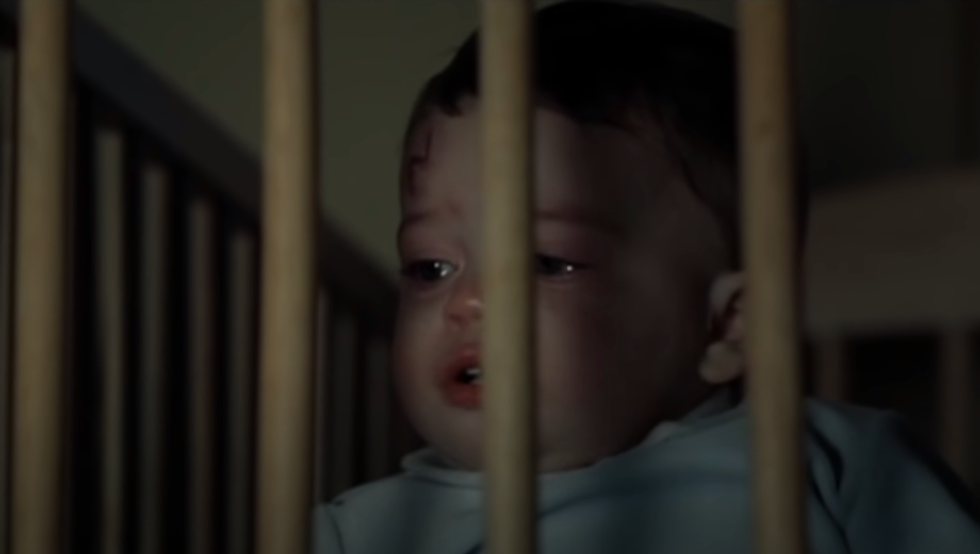
"No one has greater love than this, that one should lay down his life for his friends." John 15:13
Explaining to Harry how he could have survived Voldemort's killing curse with just a scar, Dumbledore said this: "Love as powerful as your mother's for you, leaves its own mark." The headmaster goes on to describe a kind of protective magic that is even more powerful than the inevitability of death: love. Voldemort only wanted to kill Harry because of the prophecy indicating that the boy would eventually defeat the dark lord once and for all. However, because Lily sacrificed herself in place of her one-year-old son, the curse could not kill Harry. If it weren't for this powerful, parental, sacrificial love, Harry would have been killed too. We too would be destined to suffer the consequence of death if it weren't for the sacrificial love of our parent. John 3:16 says, "For God so loved the world, that he gave his only son that whoever believes in him shall not perish, but have everlasting life." Countless times in scripture, it is emphasized that we are saved only by the powerful love of God. This love is illustrated by Jesus' sacrifice on the cross. Death was arrested, life begins!!5. "The last enemy to be destroyed is death."
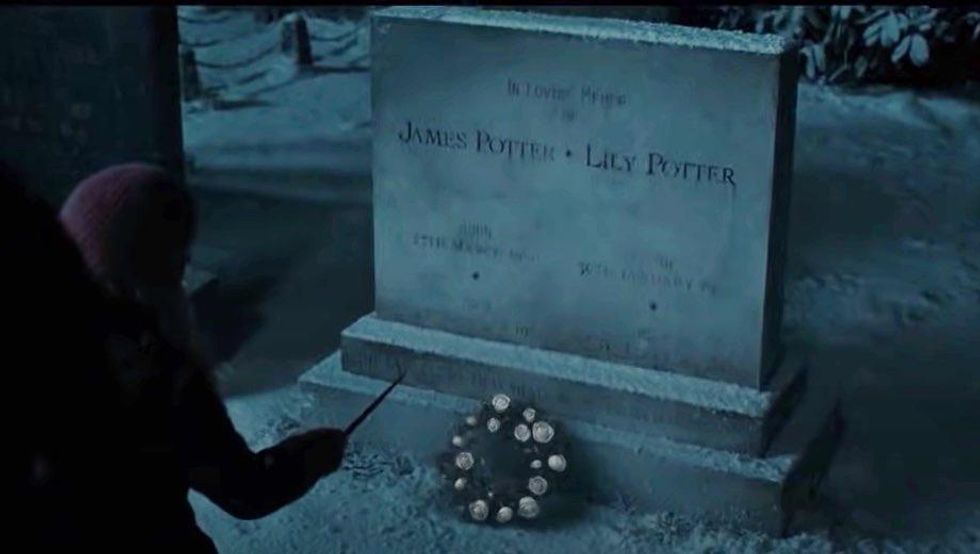
This tomb engraving on James and Lily Potter's grave is a direct quotation from 1 Corinthians 15:26. This quote is pulled from Paul's letter to the people of Corinth as he encourages the Church with this hopeful truth: because of Christ's sacrifice and resurrection, believers will also "defeat death" by living eternally. Death is the "last enemy" to be defeated because, although we all face death at the end of our lives, believers will be raised up again. In Harry Potter, this is an allusion to Harry's eventual defeat of Voldemort. In order to finally defeat Voldemort, Harry had to die. In order for the evil within Harry to be exterminated (aka the horcrux of Voldemort), he had to put it to death. After all, the Prophecy about Harry defeating Tom Riddle said "Neither can live while the other survives." When Harry realized that he must die to save the world, he walked into the Forbidden Forest to sacrifice His life. However, Harry rose again! It was the evil within him that was put to death! Similarly, our route to life abundant and eternal is through the sacrificial death and resurrection of Jesus Christ. Have hope for Jesus came, not "to judge the world but to save the world" (John 12:47).
6. "Where your treasure is, there your heart will be also."
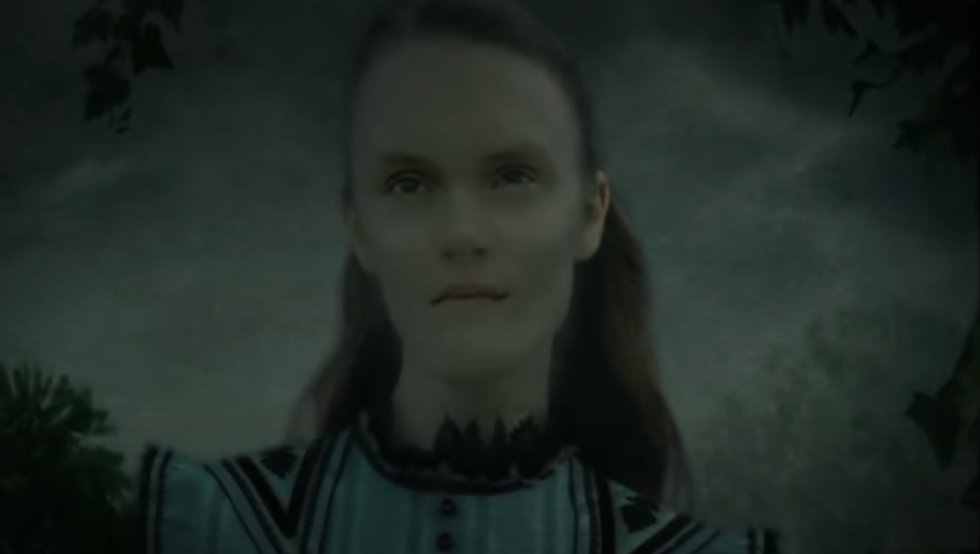
https://www.youtube.com/watch?v=HdsM9rrcAGw
In The Deathly Hallows, when Harry and Hermione visit the gravesite of James and Lily Potter, they find another gravesite that catches their eye: that of Dumbledore's late younger sister, Ariana Dumbledore. Engraved on her tombstone is a scriptural verse from Matthew 6, reading "Where your treasure is, there your heart will be also." As every Harry Potter fan knows, the story of Ariana's life and death is a heartbreaking one. At just 6 years old, young Ariana was attacked by a group of frightened muggle boys who witnessed her using magic. From that point forward, Ariana lived a life of trauma and agony, never able to fully control or mature into her magic. Ariana lived under the supervision of her mother until she unintentionally killed her during one of her many emotional episodes. From there, Albus, a recent Hogwarts graduate, begrudgingly became her new caretaker in his childhood home. Plagued by boredom and resentment, Albus befriended a neighborhood boy by the name of Gellert Grindelwald. Unbeknownst to all, Grindelwald would grow up to become the darkest wizard in history until Voldemort's reign. Young Albus was intrigued by Gellert's seemingly innocent dreams of power and questionable fantasies of Wizarding revolution. Unfortunately, Dumbledore realized Grindelwald's evil much too late. 14-year-old Ariana was killed when she was hit by a deadly curse in a three-way duel between her favorite brother Aberforth, Albus, and Gellert. The Dumbledore brothers not only had a falling out after this tragedy, but both had to endure life with the burden of never knowing whose curse actually killed their sister. The verse on Ariana's tombstone is an admonishment that Jesus gave his disciples as he told them to not chase worldly treasures but to rather find treasure in Christ. Perhaps, by choosing this engraving, Albus was acknowledging that those who chase power and fame over love and family (like Albus did through his friendship with Grindelwald) will reap the consequences.
7. Harry's resurrection
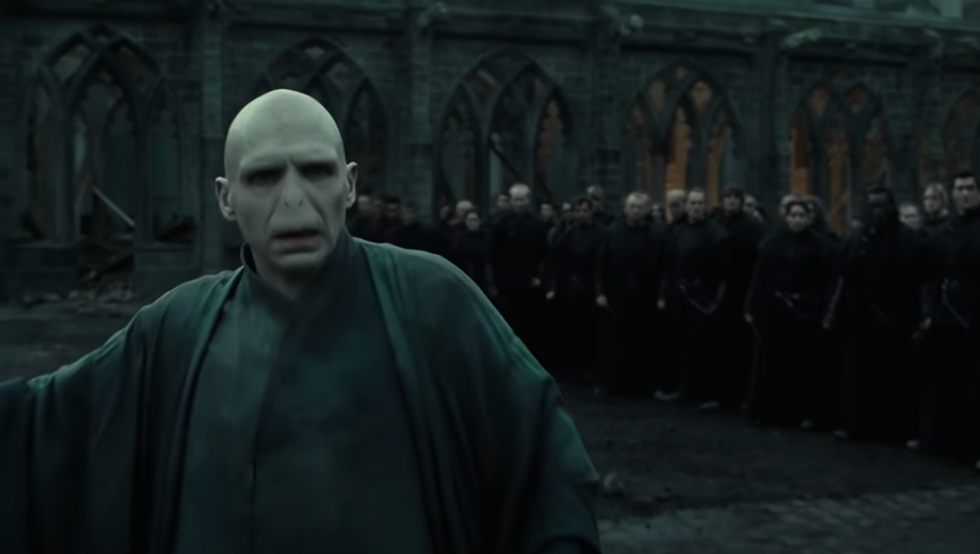
https://www.youtube.com/watch?v=kUd2DLfwYk8
The best plot twist in the series is none other than Harry's second and final survival of Voldemort's killing curse at the end of The Deathly Hallows. In a beautiful paradox that resembles the cross, Harry did not just "survive" but died and resurrected. As previously explained in #4, Harry's sacrifice all comes back to Lily's sacrifice and the importance of love. Even the most devout of Harry Potter fans find this concept perplexing (albeit beautiful) and that is because it is supposed to be. When Voldemort hit Harry with the killing curse in the forbidden forest, it destroyed the horcrux inside of Harry but not Harry himself. Lily's powerful enchantment of love was still in effect, so Harry was only sent to some sort of spiritual limbo that resembled Kings Cross Station. There, he encounters the recently deceased Dumbledore, of whom Harry asked what exactly was going on. He thought he had sacrificed his life for the sake of the world...so, why was he still alive? All throughout The Deathly Hallows, the concept of being the "Master of Death" is explored and even questioned. Some, like Xeonephilius Lovegood, believed that obtaining all three Deathly Hallows (the cloak, the elder wand, and the resurrection stone) would make you all powerful and, therefore, immortal. Voldemort, who always sought immortality, would go so far as murder to obtain the hallows and, therefore, become this Master of Death. Even young Albus Dumbledore desired to understand the Deathly Hallows in a useless attempt to grasp the concept of death-- something that he had a lot of experience with. However, the only person in history who perfectly received the power of all three hallows was also the only person that never desired to "master death": Harry himself. Instead, Harry walked willingly to death, fully accepting his mortality. It seems as though mastering death was never about possessing the power of the Hallows; it was always about accepting the inevitability of death without fear (something that the three Peverell brothers couldn't even do). More than that, it is about realizing that sacrificing your life for the sake of those you love is not just better than life, but leads to life. Let me elaborate. My favorite scene in the whole series is when Harry, while in this spiritual limbo of Kings Cross, learns from Dumbledore that he has the choice to continue on to death. "I've got to go back, haven't I?" Harry asks Dumbledore. The Headmaster then ambiguously explains that Harry has a choice, saying "I think that if you decided not to go back, you would be able to ... let's say ... board a train." "And where would it take me?" Harry asks. Dumbledore only responds with one simple word: "On." This scene reminds me of Phillipians, when Paul explains that to die would be a gain because the Earth is so difficult. However, for the sake of Christ's will, he remains alive. Harry too did not choose to "board a train" but to return to the forest and see his loved ones again. Love and sacrifice is something that Voldemort was never able to understand. Although Voldemort had every advantage, his lack of love led to his demise…and Voldemort knew this. Do you remember the scene at the end of The Goblet of Fire when Voldemort kills Cedric and takes some of Harry's blood? Voldemort believed that the enchantment of Lily's love would protect him too... and it did, but only for a little while. When Voldemort killed Harry, Lily's enchantments in Voldemort's blood kept Harry tethered to life as long as Voldemort was still alive. Lily's protection within Voldemort was still living, thus keeping Harry from being killed. That protective blood within Voldemort could not kill Harry, so it instead killed the piece of Voldemort inside Harry. Truly, love conquered death. From there, Harry was able to fully protect his loved ones by returning to kill Voldemort. For a moment, Voldemort thought that he had won; that he had "mastered death" and manipulated love for his advantage. But he was wrong. Even the darkest magic cannot conquer love.
Death cannot conquer love. Romans 14:9 says, "For to this end Christ died and lived again, that He might be Lord both of the dead and of the living." When Christ died on the cross, the wages of sin (death) died too. All we need to do is believe and we will be saved. Rejoice, for Jesus has saved the world!!!!


















